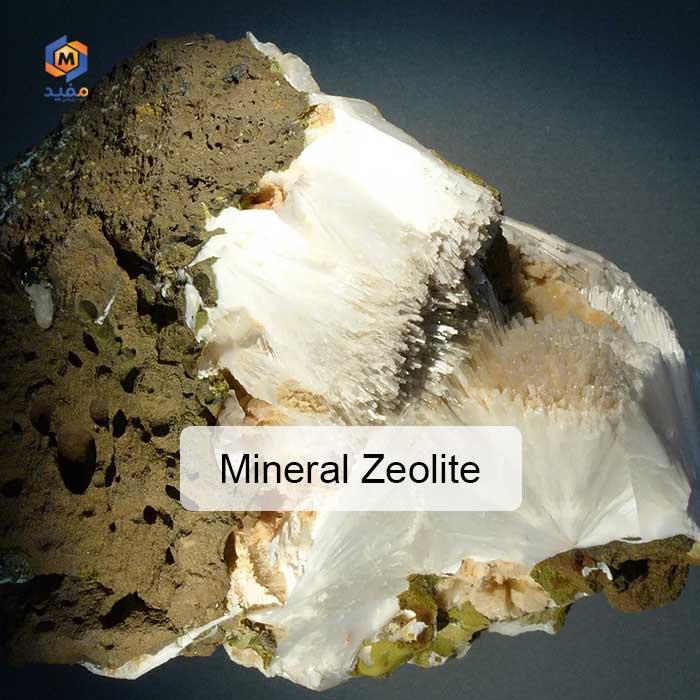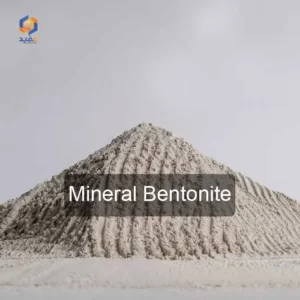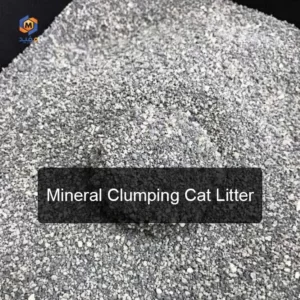Description
Zeolites are a group of aluminum silicate minerals with a crystalline, porous structure. They are naturally found in volcanic ash and sedimentary deposits. Zeolites are known for their ability to absorb and retain water and nutrients, as well as their cation exchange capability.
What is a mineral zeolite? Zeolite is a natural mineral composed of aluminum, silicon, and oxygen. Its porous crystalline structure makes it resemble a sponge. These fine and coarse cavities give zeolite the ability to absorb and hold various substances. Interestingly, one gram of zeolite has a surface area equivalent to that of a football field! This unique structure makes zeolite an efficient material in various industries, including agriculture.
Types of Mineral Zeolites There are over 40 types of zeolites found in nature, but only a few are abundant. The most commonly used types of mineral zeolites in agriculture include:
- Clinoptilolite
- Mordenite
- Laumontite
- Ferrierite
Each type of zeolite has its own specific properties and is used for different purposes.
How Mineral Zeolite is Extracted Zeolite is naturally found in volcanic and sedimentary rocks. Extraction of mineral zeolite is done using various methods such as open-pit and underground mining. After extraction, raw zeolite undergoes specific processing to be prepared for various uses.
Zeolite fertilizers, due to osmotic pressure differences, ion exchange properties, and balancing between zeolite and the external environment, can detect when a plant needs specific nutrients and release those nutrients at the appropriate time. This is why mineral zeolite is often called a smart fertilizer.
Applications of Mineral Zeolite Zeolites have a variety of applications due to their porous structure and high surface area. Some uses of mineral zeolite include:
- Soil improvement: Helps with drainage, aeration, and water retention.
- Fertilizer: Acts as a nutrient source for plants.
- Pest control: Helps control pest populations in the soil.
- Water and wastewater treatment: Aids in removing pollutants from water and wastewater.
- Animal feed: Acts as a mineral source for livestock and poultry.
- Medicine: Can be used in treating certain diseases such as diarrhea and stomach ulcers.
- Chemical industry: Used in catalytic purification and gas separation.
Benefits of Using Zeolite in Agricultural Fertilizers Zeolite fertilizer is a type of mineral fertilizer made from processed mineral zeolite. With its porous structure, zeolite acts like a sponge, able to absorb and store water and nutrients. This feature makes zeolite fertilizer an ideal source for plant nutrition.
- Reduces the fermentation time of animal manures by 4 to 5 times
- Pasteurizes organic, compost, and animal manures and eliminates toxic and fungal elements, especially aflatoxins
- Purifies and cleanses animal manures from microbial and fungal contamination, particularly aflatoxins
- Rapidly absorbs urea from natural fertilizers and converts it into absorbable nitrogen
- Eliminates parasites and weed seeds in natural fertilizers
- Reduces unpleasant odors of fresh natural fertilizers
- Allows for the purchase of various agricultural fertilizers at reasonable prices
Impact of Zeolite on Agricultural Products
- Increases production and quality of agricultural products
- Enhances the amount, absorption, and transfer of vitamin C in fruits and plants
- Improves the quality of product skins, increasing their storage capability
- Increases weight and number of plant products
- Reduces the number of unripe fruits and flower drop
- Boosts the freshness, vigor, and volume of agricultural products
- Carrier for herbicides and pesticides
- Prevents spoilage and decay of products in storage for a long time after harvest
- Increases the inventory of beneficial minerals needed by the body in products
- Positively affects the color and taste of products
Impact of Zeolite on Agricultural Soil Benefits of using mineral zeolite in agricultural soil:
- Reduces soil salinity
- Increases the proportion of water-resistant soil particles
- Prevents nitrogen leaching from soil due to irrigation and rain
- Prevents soil erosion and wastage due to high water and moisture absorption
- Absorbs moisture from the air and soil and gradually releases it into the soil
- Improves soil aeration and provides necessary oxygen
- Enhances the physical and chemical quality of soil and improves ecological system conditions
- Significantly benefits agricultural soils used for growing tuber plants like potatoes, onions, and beets
- Prevents soil depletion of raw materials due to high ion exchange capacity and reconditioning
- Regulates soil pH and balances it to optimal levels
- Regulates soil potassium, thus improving plant quality and fruit taste
- Increases biological and microbial activities
- Improves and controls soil moisture due to positive effects on soil microflora
- Enhances nitrogen balance, especially in nitrogen-deficient soils (20-30%)
- Reduces the impact of toxic elements in soil by absorbing arsenic, cadmium, zinc, copper, lead, etc.
- Maintains the effectiveness of chemical and natural fertilizers for a long time and reduces nutrient leaching
- Shapes agricultural soils and prevents clumping
Benefits of Using Mineral Zeolite in Agricultural Irrigation This material can significantly impact the quality and quantity of agricultural products and irrigation efficiency due to its unique properties.
- Reduces water salinity
- Absorbs toxic metals from water
Role of Zeolite on Plants and the Environment
- Greatly conserves water usage and stores water in low-rainfall areas
- Completely purifies and sanitizes urban wastewater for use in irrigation of fields and gardens
Impact of Zeolite on Plants
- Prevents root burn and improves root and plant growth
- Utilizes all available elements in the soil due to zeolite’s high ion exchange capacity
- Increases plant height, number of tillers, and plant and tree branches
- Enhances plant resistance to decay and diseases
- Boosts plant absorption efficiency
- Promotes plant growth and strengthening
Ecological Effects of Zeolite The use of mineral zeolite in agricultural soils prevents contamination of groundwater from chemical fertilizers. It also traps heavy toxic elements, especially preventing the growth of toxins such as aflatoxins in the soil, stems, leaves, and products.
This performance not only leads to healthier agricultural products and food safety but also reduces the presence of these toxins in leaves, stems, and seeds, and the consumption of these products by livestock. Additionally, adding zeolite to animal feed produces healthier protein, which contributes to community nutrition.
Moreover, waste from animals consuming zeolite and healthier forage is less toxic, quickly dries and clumps, prevents parasite growth, and has reduced unpleasant odors. Zeolite-containing fertilizers have less moisture, and their urea is quickly absorbed into the soil. Zeolite rapidly absorbs this urea and converts it into absorbable nitrogen. Thus, zeolite plays a role in the ecological cycle and environmental health.
Buying and Selling Mineral and Agricultural Zeolite mofid Company is an active player in the buying and selling of mineral and agricultural zeolite in Iran. This company offers various types of zeolite with different qualities and tonnages to its customers.
The price of zeolite depends on the type, quality, order quantity, and delivery location. For accurate pricing information, you can contact the experts at mofid Company.
Purchasing high-quality zeolite can help improve soil quality, increase agricultural efficiency, and reduce production costs.




parsdemo –
سلام محصول خوبی است.